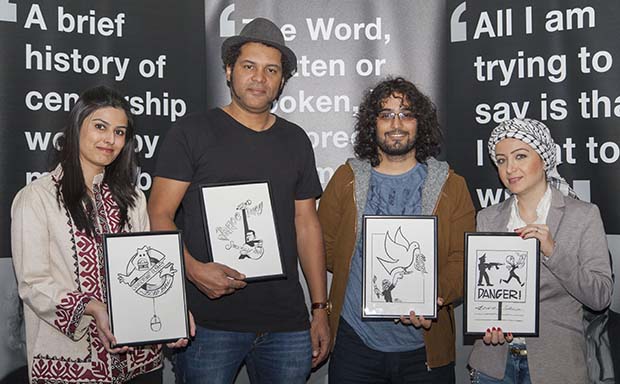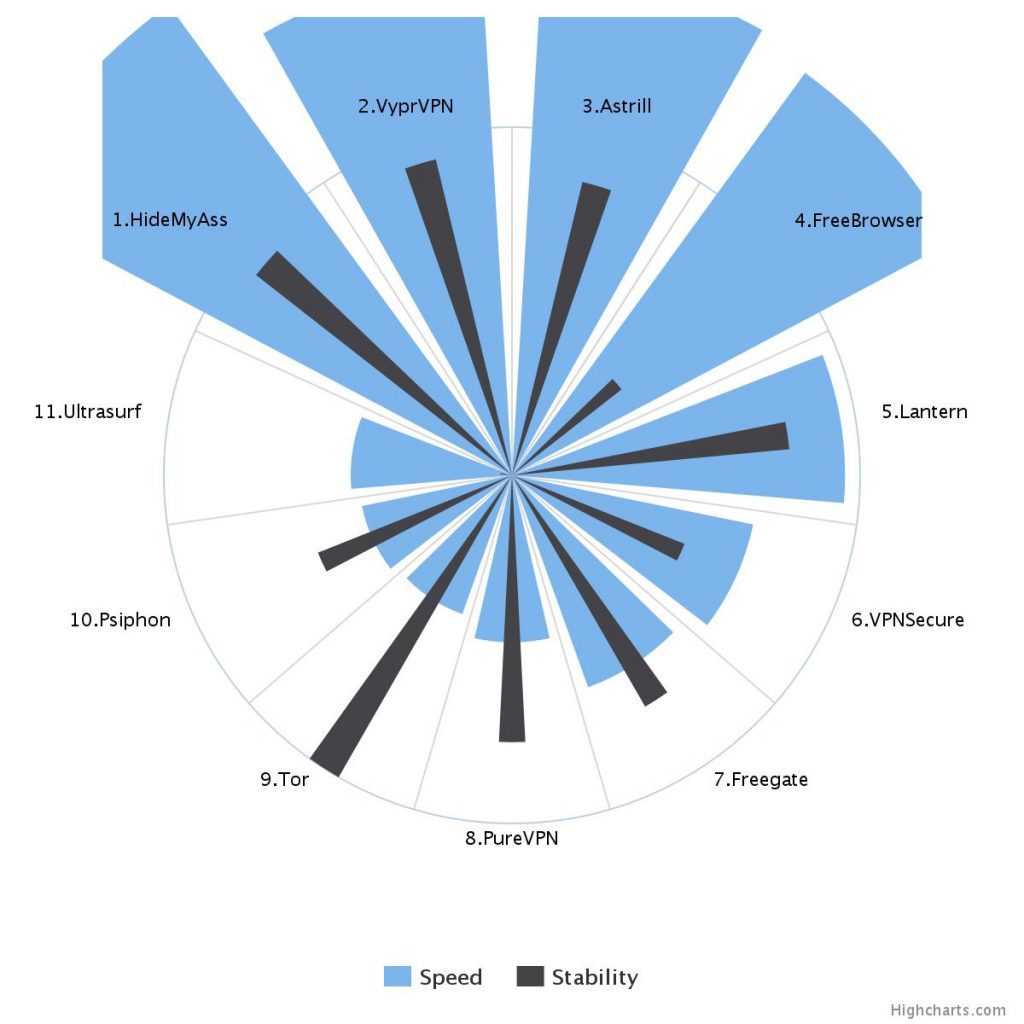4 Oct 2016 | Asia and Pacific, Awards, China, Fellowship, Fellowship 2016, mobile, News and features

In April 2016 the US government called China’s Great Firewall a barrier to trade. This came just months after the US criticised China for cyber spying on American companies, or what the Justice Department called the “great brain robbery”.
“Obama keeps saying that if China continues employing its hacking units to attack US companies, America will tear down the Great Firewall,” Charlie Smith, co-founder of GreatFire, the anonymous group of individuals who work towards circumventing China’s Great Firewall and winners of the 2016 Index on Censorship Freedom of Expression Award for digital activism, told Index. “Great – so tear it down, let’s go.”
But it’s not happening, Smith added.
Over on the other side of America’s political spectrum, US senator Ted Cruz has been busy over the last month trying to get the US Congress to act to “prevent the Obama administration from giving the internet” to China. Cruz failed in his mission, as on 1 October the US gave up its remaining control over the internet, with the California-based Internet Corporation for Assigned Names and Numbers (ICANN) no longer under the direction of the Department of Commerce.
There are now fears that the change will open the door for authoritarian governments, including China’s, to get control of the network of networks, leading to greater censorship.
In Cruz’s first letter to ICANN, kicking off his attempt to stop the move, the former presidential hopeful quoted GreatFire’s research into internet censorship in China.
“I then reached out to them and said: ‘Hey, we’re GreatFire, what more do you want to know?’” Smith said. “ICANN has a representative in Beijing and that representative sits in the Cyberspace Administration office, which is censorship central, so Cruz’s campaign was very interested in that.”
Although GreatFire would not align themselves with a political party, Smith added that if Cruz really believes what he is saying and GreatFire can help, the organisation will support him on this issue.
GreatFire’s own efforts to put a hole in China’s firewall took a new turn in July 2016 with the launch of its groundbreaking new site to test virtual private networks within the country, Circumvention Central. “Stable circumvention is a difficult thing to find in China so this new site a way for people to see what’s working and what’s not working,” Smith told Index at the time.
Speaking three months on, Smith told us that although the site works and customers are overwhelmingly pleased with the service, it isn’t making as many sales as he’d hoped it would. In August the platform sold a few dozen subscriptions but Smith was really hoping to see numbers in the hundreds by this stage.
“Maybe we’re not getting enough people to the site,” Smith said. “I guess it’s timing too; people have other subscriptions that haven’t yet expired, so they’re not ready.”
“What we have done, however, is engaged with some VPN firms like a paid consultancy service and helped them improve what they are doing,” Smith added. “It’s actually been quite revealing because we can see the volatility in the market and how one service may work really well this month and next month it will basically be useless.”
GreatFire is working closely with VPN services Hide My Ass and AnchorFree, both of whom have been introductions from Index on Censorship.
The Chinese government has taken notice of Circumvention Central, sending an email to all VPN providers listed on the site asking them not to stop operating in China but to cease working with GreatFire specifically.
One reads: “Please immediately stop working with GreatFire.org. GreatFire.org is an anti-China website as declared by the Cyberspace Administration of China. We hereby express our strong concern and request you stop working with GreatFire at the earliest time possible.”
“So there’s no real serious threat from the government there,” Smith said, adding that although Chinese authorities are constantly trying to take down or attack the site, they have been wholly unsuccessful.
GreatFire is also working on its free internet browser that allows users to access content that’s behind China’s firewall. The browser is currently available in English and Chinese, but will soon be available in traditional Chinese, Arabic, Spanish, Croatian and Persian.
“We’re currently looking for publications in those languages that are blocked so we can help provide access,” said Smith.
The main focus for the future, however, is the VPN service. “We believe we have the best circumvention tool on the market and we want to show people how it works and drive adoption.”
Also read:
Smockey: “We would like to trust the justice of our country”
Zaina Erhaim: Balancing work and family in times of war
Artist Murad Subay worries about the future for Yemen’s children
Nominations are now open for 2017 Index on Censorship Freedom of Expression Awards. You can make yours here.
12 Sep 2016 | Awards, Campaigns, Campaigns -- Featured, Press Releases
Also available in: Arabic, French, German, Italian, Mandarin, Portuguese (Brazil), Portuguese (Portugal), Russian, Spanish, Turkish

Index on Censorship opens nominations for the 2017 Freedom of Expression Awards and Fellowship
- Awards honour journalists, campaigners, digital activists and artists fighting censorship globally
- Nominate at indexoncensorship.org/nominations
- Nominations are open from 12 September to 11 October 2016
Beginning today, nominations for the Index on Censorship Freedom of Expression Awards Fellowship are open. Now in their 17th year, the awards honour some of the world’s most remarkable free expression heroes. Previous winners include Chinese digital activists GreatFire, Syrian cartoonist Ali Farzat and Angolan investigative journalist Rafael Marques de Morais.
Index invites the general public, civil society organisations, non-profit groups and media organisations to nominate anyone (individuals or organisations) who they believe should celebrated and supported in their work tackling censorship worldwide.
There are four categories in Index on Censorship’s Freedom of Expression Awards:
- Arts for artists (any form) and arts producers whose work challenges repression and injustice and celebrates artistic free expression.
- Campaigning for activists and campaigners who have had a marked impact in fighting censorship and promoting freedom of expression.
- Digital Activism for innovative uses of technology to circumvent censorship and enable free and independent exchange of information.
- Journalism for courageous, high impact and determined journalism (any form) that exposes censorship and threats to free expression.
Relevant nominees are also eligible for the Music in Exile Fellowship, which supports musicians whose work is under threat.
As awards fellows, all winners receive one residential week of networking, advanced training and consultancy in London (April 2017) followed by 12 months of bespoke support to amplify and sustain their valuable work for free expression worldwide.
Jodie Ginsberg, CEO of Index, said: “The Freedom of Expression Awards not only showcase but also strengthen groups and individuals doing brave and brilliant work to enhance freedom of expression around the world. These are true heroes – people who often have to overcome immense obstacles and face great danger just for the right to express themselves. I urge everyone to nominate their free expression champion – make sure their voice is heard.”
The 2017 awards shortlist will be announced in late January. The winners will be announced in London at a gala ceremony on 19 April 2017 at The Unicorn Theatre.
For more information on the awards and fellowship, please contact [email protected] or call +44 (0)207 963 7262.
Also available in: Arabic, French, German, Italian, Mandarin, Portuguese (Brazil), Portuguese (Portugal), Russian, Spanish, Turkish
25 Jul 2016 | Africa, Asia and Pacific, Burkina Faso, Middle East and North Africa, News and features, Pakistan, Syria, Yemen

Winners of the 2016 Freedom of Expression Awards: from left, Farieha Aziz of Bolo Bhi (campaigning), Serge Bambara — aka “Smockey” (Music in Exile), Murad Subay (arts), Zaina Erhaim (journalism). GreatFire (digital activism), not pictured, is an anonymous collective. Photo: Sean Gallagher for Index on Censorship
In the short three months since the Index on Censorship Awards, the 2016 fellows have been busy doing important work in their respective fields to further their cause and for stronger freedom of expression around the world.
GreatFire / Digital activism
GreatFire, the anonymous group of individuals who work towards circumventing China’s Great Firewall, has just launched a groundbreaking new site to test virtual private networks within the country.
“Stable circumvention is a difficult thing to find in China so this new site a way for people to see what’s working and what’s not working,” said co-founder Charlie Smith.
But why are VPNs needed in China in the first place? “The list is very long: the firewall harms innovation while scholars in China have criticised the government for their internet controls, saying it’s harming their scholarly work, which is absolutely true,” said Smith. “Foreign companies are also complaining that internet censorship is hurting their day-to-day business, which means less investment in China, which means less jobs for Chinese people.”
Even recent Chinese history is skewed by the firewall. The anniversary of Tiananmen Square protests of 1989 last month went mostly unnoticed. “There was nothing to be seen about it on the internet in China,” Smith said. “This is a major event in Chinese history that’s basically been erased.”
Going forward, Smith is optimistic for growth within GreatFire, and has hopes the new VPN service will reach 100 million Chinese people. “However, we always feel that foreign businesses and governments could do more,” he said. “We don’t see this as a long game or diplomacy; we want change now and so I feel positive about what we are doing but we have less optimism when it comes to efforts outside of our organisation.”
Winning the Index on Censorship Freedom of Expression Award for Digital Activism has certainly helped morale. “With the way we operate in anonymity, sometimes we feel a little lonely, so it’s nice to know that there are people out there paying attention,” Smith said.
Murad Subay / Arts
During his time in London for the Index awards, Yemeni artist Murad Subay painted a mural in Hoxton, which was the first time he had worked outside of his home country. “It was a great opportunity to tell people what’s going on in Yemen, because the world isn’t paying attention,” he explained to Index.
Since going home, Subay has continued to work with Ruins, his campaign with other artists to paint the walls of Yemen. “We launched in 2011, and have continued to paint ever since.”
Last month, artists from Ruins, including Subay, painted a number of murals in front of the Central Bank of Yemen to represent the country’s economic collapse.
In his acceptance speech at the Index Awards, Subay dedicated his award to the “unknown” people of Yemen, “who struggle to survive”. There has been little change in the situation since in the subsequent months as Yemenis continue to suffer war, oppression, destruction, thirst and — with increasing food prices — hunger.
“The war will continue for a long time and I believe it may even be a decade for the turmoil in Yemen to subside,” Subay says. “Yemen has always been poor, but the situation has gotten significantly worse in the last few years.”
Subay considers himself to be one of the lucky ones as he has access to water and electricity. “But there are many millions of people without these things and they need humanitarian assistance,” he says. “They are sick of what is going on in Yemen, but I do have hope — you have to have hope here.”
The Index award has also helped Subay maintain this hope. As has the inclusion of his work in university courses around the world, from John Hopkins University in Baltimore, USA, and King Juan Carlos University in Madrid, Spain.
Subay’s wife has this month travelled to America to study at Stanford University. He hopes to join her and study fine art. “Since 2001 I have not had any education, and this is not enough,” he explains. “I have ideas in my head that I can’t put into practice because i don’t have the knowledge but a course would help with this.”
Zaina Erhaim / Journalism
Syrian journalist and documentary filmmaker Zaina Erhaim has been based in Turkey since leaving London after the Index Awards in April as travelling back to Syria isn’t currently possible. “We don’t have permission to cross back and forth from the Turkish authorities,” she told Index. “The border is completely closed.”
Erhaim is with her daughter in Turkey, while her husband Mahmoud remains in Aleppo.
“The situation in Aleppo is very bad,” she said. “A recent Channel 4 report by a friend of mine shows that the bombing has intensified, and the number of killings is in the tens per day, which hasn’t been the case for some weeks; it’s terrible.”
The main hospital in Aleppo was bombed twice in June. “Sadly this is becoming such a common thing that we don’t talk about it anymore,” Erhaim added.
She has largely given up on following coverage of the war in Syria through US or UK-based media outlets. “It is such a wasted effort and it’s so disappointing,” she explained. “I follow a couple of journalists based in the region who are actually trying to report human-side stories, but since I was in London for the awards, I haven’t followed the mainstream western media.”
Erhaim has put her own documentary making on hold for now while she launches a new project with the Institute for War and Peace Reporting this month to teach activists filmmaking skills. “We are going to be helping five citizen journalists to do their own short films, which we will then help them publicise,” she said.
Documentary filmmaking is something she would like to return to in future, “but at the moment it is not feasible with the situation in Syria and the projects we are now working on”.
Bolo Bhi / Campaigning
The last time Index spoke to Farieha Aziz, director of Bolo Bhi, the Pakistani non-profit, all-female NGO fighting for internet access, digital security and privacy, the country’s lower legislative chamber had just passed the cyber crimes bill.
The danger of the bill is that it would permit the Pakistan Telecommunication Authority to manage, remove or block content on the internet. “It’s part of a regressive trend we are seeing the world over: there is shrinking space for openness, a lot of privacy intrusion and limits to free speech,” Aziz told Index.
Thankfully, when the bill went to the Pakistani senate — which is the upper house — it was rejected as it stood. “Before this, we had approached senators to again get an affirmation as they’d given earlier saying that they were not going to pass it in its current form,” Aziz added.
Bolo Bhi’s advice to Pakistani politicians largely pointed back to analysis the group had published online, which went through various sections of the bill and highlighting what was problematic and what needed to be done.
This further encouraged those senators who were against the bill to get the word out to their parties to attend the session to ensure it didn’t pass. “It’s a good thing to see they’ve felt a sense of urgency, which we’ve desperately needed,” Aziz said.
“The strength of the campaign throughout has actually been that we’ve been able to band together, whether as civil society organisations, human rights organisations, industry organisations, but also those in the legislature,” Aziz added. “We’ve been together at different forums, we’ve been constantly engaging, sharing ideas and essentially that’s how we want policy making in general, not just on one bill, to take place.”
The campaign to defeat the bill goes on. A recent public petition (18 July) set up by Bolo Bhi to the senate’s Standing Committee on IT and Telecom requested the body to “hold more consultations until all sections of the bill have been thoroughly discussed and reviewed, and also hold a public hearing where technical and legal experts, as well as other concerned citizens, can present their point of view, so that the final version of the bill is one that is effective in curbing crime and also protects existing rights as guaranteed under the Constitution of Pakistan”.
A vote on an amended version of the bill is due to take place this week in the senate.
Smockey / Music in Exile Fellow
Burkinabe rapper and activist Smockey became the inaugural Music in Exile Fellow at the Index on Censorship Freedom of Expression Awards, and last month his campaigning group Le Balai Citoyen (The Citizen’s Broom) won an Amnesty International Ambassador of Conscience Award.
“This was was given to us for our efforts in the promotion of human rights and democracy in our country,” said Smockey. The award was also given to Y en a marre (Senegal) and Et Lucha (Democratic Republic of the Congo).
“We are trying to create a kind of synergy between all social-movements in Africa because we are living in the same continent and so anything that affects the others will affect us also,” Smockey added.
Le Balai Citoyen has recently been working on programmes for young people and women. “We will also meet the new mayor of the capital to understand all the problems of urbanism,” Smockey added.
While his activism has been getting international recognition, he remains focused on making music with upcoming concerts in Belgium, Switzerland and Germany, and he is currently writing the music for an upcoming album. A major setback has seen Smockey’s acclaimed Studio Abazon destroyed by a fire early in the morning of 19 July. According to press reports the studio is a complete loss. The cause is under investigation.
Despite this, Smockey is still planning to organise a new music festival in Burkina Faso. “We want to create a festival of free expression in arts,” Smockey said. “And we are confident that it will change a lot of things here.”
He is thankful for the exposure the Index Awards have given him over the last number of months. “It was a great honour to receive this award, especially because it came from an English country,” he said. “My people are proud of this award.”
5 Jul 2016 | Asia and Pacific, Campaigns, Campaigns -- Featured, China, Press Releases

Anti-censorship group GreatFire has today launched a new service that will help internet users inside China live test how well different virtual private networks are working in the country.
VPNs, which create direct links between computers and offer a way in which to gain unrestricted access to the internet, are vital for business in China as well as for accessing information. The country actively censors the internet, with users having to use circumvention tools in order to access over 18,000 websites including Google, Facebook, the BBC and the New York Times.
“There is a commonly held belief in China that if you have a VPN that works then you should keep quiet about it,” said GreatFire co-founder Charlie Smith. “In terms of freedom of access to information, the problem with this approach is that it keeps useful knowledge secret. We hope this project will destroy that model and give people accurate information so they can make informed choices. The public need to be able to get online quickly, reliably and free from state censorship.”
Chinese authorities have stepped up their attacks on circumvention tools over the past 18 months and GreatFire’s new testing site is part of the group’s attempt to fight back. The site – Circumvention Central (CC) – provides real-time information and direct access to both free and paid-for censorship-evasion tools that are working in China.

Constantly updated using information from within China, all VPNs (including GreatFire’s own circumvention tool FreeBrowser) are measured on both speed (how quickly popular websites are loaded) and stability (the extent to which popular websites load successfully).
Speed tests typically measure download and upload speed by sending a few requests to a speed test server. That means reported speeds do not reflect user experience because normal browsing involves frequently sending lots of requests to many different servers.
In contrast, GreatFire’s speed test aims to reflect real user experience by downloading resources from the ten most popular websites in the world, including Google, Facebook, YouTube, Baidu, Amazon and Yahoo. If the contents returned are incorrect or if the download fails to complete within 40 seconds, the test is marked as failed.
Besides speed, stability is also tracked. Typically not taken into account by other services, the stability test reflects the likelihood of a connection failing. Although any connection anywhere should deliver 100% stability unless unplugged, VPNs on the ground in China fail regularly. Testing happens in real-time, which is essential to an environment where VPNs get blocked and unblocked continuously.
Visitors to the CC site can purchase any paid-for tool currently tested. GreatFire will act as a reseller of these tools in China and as such be given a portion of each sale by the VPN providers themselves. Users need not be based in China to purchase a circumvention service.
Any revenue generated through the site will be used to support the ongoing digital activism of GreatFire, which earlier this year won an Index on Censorship Freedom of Expression Award for its work fighting online censorship in China.
“At the moment, GreatFire relies on the kindness of individuals who send us donations and a limited number of grant-making organizations around the world,” said Smith. “We want to reduce our reliance on these organizations and raise enough funds to properly end internet censorship in China as soon as is humanly possible”.
Smith hopes the new site will revolutionise VPN use in China. “Until CC, nobody has provided public information about the effectiveness of circumvention tools in China. Many have provided misinformation,” he said. “Some VPN providers have also famously encouraged their customers to “keep quiet” about the effectiveness of their solutions. On the contrary, we encourage everyone who hears about this project to share this information with those who they think could benefit.”
For more information please contact [email protected]
Notes for editors
See below for image, copyright free.
GreatFire.org campaigns for transparency of Chinese censorship by providing numerous effective online services that enable users to better understand how censorship operates in China. GreatFire also provides mechanisms for internet users to access censored content. The organisation operates six projects: GreatFire, FreeWeibo, Collateral Freedom, FreeBrowser, FreeBooks and Circumvention Central. A seventh project, Free WeChat, is in development.
Index on Censorship is an international organisation that defends people’s freedom to express themselves without fear of harm or persecution. Our Freedom of Expression Awards celebrate some of the world’s most creative and courageous artists, campaigners, journalists and digital activists. As winners of the 2016 award for Digital Activism, GreatFire are current Fellows, supported to magnify their impact and further the fight against censorship worldwide.





